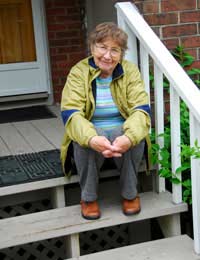What is Assisted Living?

When it comes to getting healthcare help as you near retirement, each of you may have very different needs and therefore, in choosing a suitable place to move to if you’ve decided to relocate in retirement, it’s important to choose the most suitable type of housing. The good thing about assisted living is that it sits very neatly in the middle between a residential care home, care in the community and sheltered accommodation.
With assisted living housing, you live independently within your own home but it’s a home that is located within a larger network of others as part of a kind of larger ‘care home’ and has all the back up support available that would be offered within a care home, whilst allowing you to still lead an independent life. There will be communal areas where you can meet other residents such as a lounge and shared gardens and there will usually be provisions for group activities with perhaps classes and days out being arranged.Who is it Aimed at?
Assisted living is for those who aren’t at the stage of needing constant around the clock care such as you’d require in a conventional care home, yet who still need some help with specific medical and/or mobility problems. Assisted living housing developments have staff who can help you with things like providing you with a meals service, help with your laundry or your day-to-day shopping needs to assisting you with getting washed and dressed and administering any medication.Many retired couples where one spouse may have a more severe medical condition than the other often find assisted living schemes particularly beneficial in that the healthier spouse is able to assist their loved one around the home for the most part, yet just need some additional back-up support which the staff can provide. This helps them stay together as a couple living together independently for longer, whilst having the security of knowing that should one of them take a turn for the worse, they will be able to be taken into residential care if need be.
What Are the Other Benefits?
One of the real benefits is in terms of cost. Assisted living schemes cost far less than it would to go into residential care so, providing the person(s) have some degree of independence and are not in need of around the clock care, it can help them to hold on to their assets for far longer. In fact, some people who might have been forced to sell their home to pay for residential care have been able to keep hold of it by being able to afford the reduced cost of paying to live in an assisted living development.Another benefit of assisted living is communal activities and areas which they can also enjoy, it helps people maintain a network of friends and a sense of community. Within the houses or apartments themselves, they will come fully equipped with communication pull cords and mobility aids so that if an emergency occurs, they can summon medical assistance immediately. Unlike sheltered accommodation which also follows a similar practice when it comes to being able to summon help but tends to focus more on completely independent living, assisted living is more designed for people who do have some kind of medical condition or mobility problem, for which they require some form of assistance, yet their problems are not severe enough for them to warrant moving into a residential care home.
- Questionnaire: Can I Purchase a Holiday Home in Retirement?
- Using Shared Ownership in Retirement
- The Top Places to Retire
- What Type of Retirement Home Would Suit Me Best?
- Questionnaire: Is Your Home Right for Retirement?
- Moving in to a Hospice and What to Consider
- Mobile Homes in Retirement
- Top Places in the World to Retire To
- Retirement Property Abroad
- Information About Care Homes in Retirement
- Sheltered Housing
- Retirement Villages


Re: Retiring to Greece
I am looking for a gated community with health care and social meeting place by the sea
Re: Using Shared Ownership in Retirement
I live in a shared ownership second floor but there is no lift and the next door neighbour is knocking early morning…
Re: Using Shared Ownership in Retirement
hi can i buy a shared ownership property ie two bedroom house if i am 68 years old
Re: Lifetime Mortgages: A Case Study
i would like you to tel me how i can get equity realease in irish rep thank you
Re: Using Shared Ownership in Retirement
I'm currently looking at shared ownership. I'm 61 and still working part time and drawing a private pension. The Estate…
Re: Can I Leave Property in My Will If Mortgage is Owing?
Hi. My Dad is terminally ill and only has weeks remaining to live. It has come to my attention…
Re: Can I Claim Benefits for Retirement Property?
Myana - Your Question:Hi , my husband is 60yr of age and still working full time with and earning of 1100£…
Re: Can I Claim Benefits for Retirement Property?
Hi , my husband is 60yr of age and still working full time with and earning of 1100£ per month, I work…
Re: The Top Places to Retire
Me and my wife are both disabled and are currently living in a park home, we would like to move and thought shared ownership would suit…
Re: Using Shared Ownership in Retirement
Tracy - Your Question:Hi. If a percentage of a shared ownership property is bought outright, do Housing Benefit pay the…